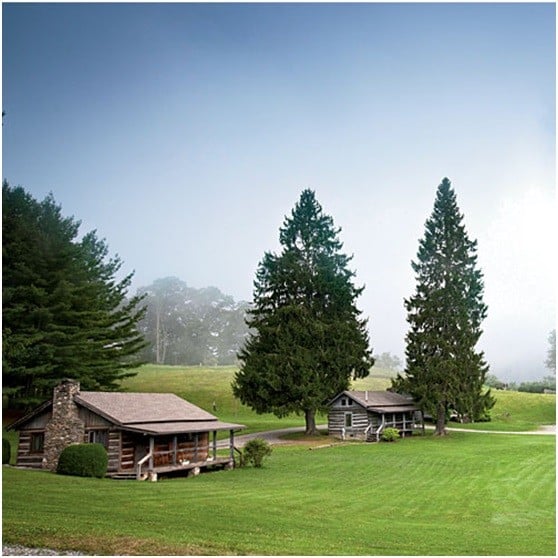Your Escape To The Country: Choosing The Right Rural Property

Table of Contents
Defining Your Needs and Wants in a Rural Property
Before you even begin your search, it's crucial to define exactly what you're looking for in a rural property. This involves careful consideration of your lifestyle aspirations and your financial capabilities.
Lifestyle Considerations:
What kind of rural lifestyle are you envisioning? Are you dreaming of a self-sufficient life on a working farm, the gentle pleasures of a hobby farm, or the serene escape of a peaceful retreat? Your lifestyle choices will heavily influence your property search.
- Type of Rural Living: Consider the specific type of country living you desire. Do you want to be involved in farming opportunities, raising livestock, or simply enjoy gardening and outdoor activities? Or is your ideal a quiet retreat far from the hustle and bustle of city life?
- Proximity to Amenities: How important is it to be close to schools, hospitals, shops, and other essential amenities? While the appeal of rural living often lies in its seclusion, proximity to necessary services can greatly impact your quality of life. Consider your commute needs if you work in a city or a nearby town.
- Outdoor Activities: What outdoor activities are important to you? Do you enjoy hiking, fishing, hunting, or other recreational pursuits? Ensure the property and its surrounding area offer access to your favorite activities.
Budget and Financing:
Realistically assessing your budget is paramount. The cost of a rural property extends far beyond the purchase price.
- Financial Planning: Your budget should include not just the purchase price but also property taxes, insurance, ongoing maintenance costs (repairs, landscaping), and potential renovations or upgrades.
- Rural Property Financing: Explore your financing options thoroughly. Securing a mortgage for a rural property might require a different approach than securing a city mortgage. Research lenders specializing in rural property financing and understand the specific loan terms and conditions.
- Investment Considerations: While purchasing a rural property can be a rewarding experience, also consider its potential for future appreciation or depreciation in value.
Location, Location, Location: Finding the Perfect Rural Setting
The location of your rural property is just as important, if not more so, than the property itself. Thorough research is essential.
Researching Different Rural Areas:
Don't limit your search to just one area. Consider various factors in different rural locations.
- Climate and Soil: Research the climate and soil conditions, especially if you plan on farming or gardening. Understand the growing season and any potential challenges specific to the region.
- Proximity to Towns and Cities: Balance your desire for seclusion with the convenience of proximity to towns and cities.
- Utilities and Infrastructure: Ensure access to reliable utilities, including water, electricity, internet, and phone service. This is especially crucial if you plan on working remotely from your rural property. Research the availability and cost of these utilities.
- Local Regulations and Zoning: Familiarize yourself with local regulations and zoning laws, understanding any restrictions on building, farming, or land use. Consult local government websites and speak with residents to gain a comprehensive understanding.
- Community: Research the local community. Visit the area, talk to residents, and explore what the community offers in terms of social interaction, local events, and overall atmosphere.
Evaluating the Property Itself:
Once you've narrowed down your search area, take the time to thoroughly evaluate each individual property.
- Property Inspection: Engage a professional building inspector to assess the condition of the property, identifying any structural issues, drainage problems, or pest infestations. This is crucial to avoid costly surprises later on.
- Land Assessment: Consider the size and usability of the land. Assess the quality of the soil, the presence of any water sources, and the overall layout of the property.
- Outbuildings: If the property includes outbuildings (barns, sheds, garages), evaluate their condition and suitability for your needs.
Essential Considerations Beyond the Property Itself
Beyond the property itself, several other factors require careful attention.
Utilities and Infrastructure:
Reliable utilities are essential for comfortable rural living.
- Utility Availability: Verify the availability and reliability of all essential utilities – water, electricity, internet, and phone service. Inquire about the cost of these utilities and any potential limitations.
- Road Access: Assess the condition of roads leading to the property and the ease of access throughout the year, especially in areas prone to severe weather.
Legal and Regulatory Aspects:
Navigating the legal aspects of purchasing rural property is crucial.
- Property Boundaries and Easements: Clearly define property boundaries and understand any existing easements (rights of way) or covenants that may affect your use of the land.
- Environmental Regulations: Be aware of any environmental regulations that may apply to the property, particularly if you plan on farming or making significant alterations.
- Legal Counsel: Consulting with a qualified real estate lawyer is highly recommended to review contracts, ensure a smooth transaction, and protect your interests. They can help navigate complex legal issues specific to rural property purchases.
Conclusion
Choosing the right rural property is a significant decision that requires careful planning, thorough research, and attention to detail. By defining your needs and wants, researching potential locations, evaluating properties meticulously, and understanding the legal and regulatory aspects, you can increase your chances of finding your perfect rural escape. Don't rush the process. Take your time, do your due diligence, and you'll be well on your way to finding your ideal country home. Start your search for the perfect rural property today and begin your journey to a fulfilling and peaceful rural lifestyle!

Featured Posts
-
 April 19th Nyt Mini Crossword Help Clues And Solutions
May 24, 2025
April 19th Nyt Mini Crossword Help Clues And Solutions
May 24, 2025 -
 I Miliardari Piu Influenti Del 2025 La Classifica Forbes Degli Uomini Piu Ricchi
May 24, 2025
I Miliardari Piu Influenti Del 2025 La Classifica Forbes Degli Uomini Piu Ricchi
May 24, 2025 -
 Kyle Walker Peters Transfer Leeds Make Contact
May 24, 2025
Kyle Walker Peters Transfer Leeds Make Contact
May 24, 2025 -
 Menya Vela Kakaya To Sila Dokumentalniy Film Posvyaschenniy 100 Letiyu Innokentiya Smoktunovskogo
May 24, 2025
Menya Vela Kakaya To Sila Dokumentalniy Film Posvyaschenniy 100 Letiyu Innokentiya Smoktunovskogo
May 24, 2025 -
 Yevrobachennya 2025 Konchita Vurst Nazvala Chotirokh Potentsiynikh Peremozhtsiv
May 24, 2025
Yevrobachennya 2025 Konchita Vurst Nazvala Chotirokh Potentsiynikh Peremozhtsiv
May 24, 2025
Latest Posts
-
 900 Million Tariff Impact Apple Stock Takes A Hit
May 24, 2025
900 Million Tariff Impact Apple Stock Takes A Hit
May 24, 2025 -
 Apple Stock Price Decline Following Tariff Projection
May 24, 2025
Apple Stock Price Decline Following Tariff Projection
May 24, 2025 -
 Tim Cooks Tariff Warning Triggers Apple Stock Sell Off
May 24, 2025
Tim Cooks Tariff Warning Triggers Apple Stock Sell Off
May 24, 2025 -
 Is Apple Stock A Buy After Strong Q2 I Phone Sales
May 24, 2025
Is Apple Stock A Buy After Strong Q2 I Phone Sales
May 24, 2025 -
 Apple Stock Slumps On 900 Million Tariff Projection
May 24, 2025
Apple Stock Slumps On 900 Million Tariff Projection
May 24, 2025
